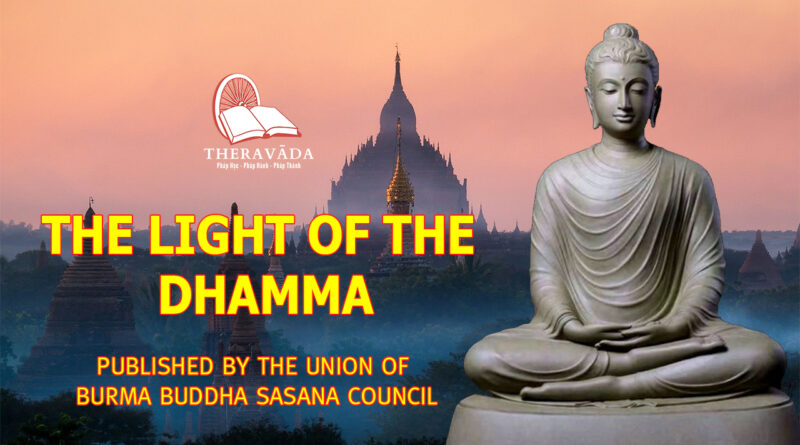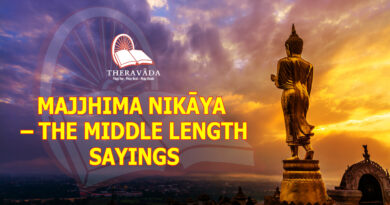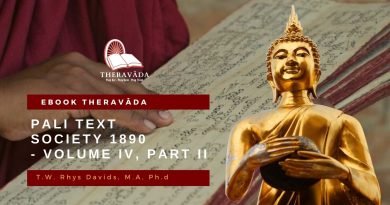The Light Of The Dhamma – The Union Of Burma Buddha Sasana Council (eng)
The Light Of The Dhamma
Vol I, No. 1
Published by The Union Of Burma Buddha Sasana Council
Introduction To The Metta Sutta.
The Commentary records that on a certain occasion a group of Bhikkhus came to where the Buddha was residing at Savatthi begging instructions in Meditation and receiving these, set out in search of a place where they could practise in solitude yet be convenient to a village. They found what seemed at first the ideal spot and were welcomed by the nearby villagers who begged them to spend the months of the rainy season there.
However some Devas were not favourably disposed to the presence of the Bhikkhus in their silent haunts and tried to frighten them away using all the means they could. At last the monks, harassed and unable to meditate, returned to Savatth2 and made report to the Buddha, Who then preached this Metta Sutta which the Bhikkhus after learning returned to their forest place and practised.
The Devas became favourable and brought gifts instead of worrying the Bhikkhus, who were thus enabled to practise in Peace. The Sutta is thus both a means of securing protection and a subject of Meditation.
In the beginning are set out the virtues which should be cultivated in order to enable the efficient practice of Meditation, and then the actual Method of Diffusion of Love. Finally are shown the Blessings gained for oneself by the practice of this infinite benevolence.
A Translation from the Burmese.
He who wishes to realise the Perfect Bliss and Peace of Nibbana through the knowledge of the path should practise to establish these fifteen qualities:
1. Without consideration for his body, without consideration even for his life, he is able to put forth effort to obtain the Path and the Fruit thereof.
2. He is honest and sincere in bodily action and speech.
3. His mind is perfectly straight- forward.
4. He is conformable to discipline and teaching of parents and teachers.
5. He is of kind and gracious mood. 6. He is entirely devoid of arrogance. 7. He is contented with the little he possesses.
8. He is a grateful guest, easily entertained.
9. He has few duties and is busy only in Meditation.
10. He is not avaricious, and earns his livelihood without unrighteous greed.
11. His senses are controlled, calm and serene.
12. He bears a ripened knowledge. 13. He is gentle and free from physical, mental and verbal bluster.
14. He is not too greatly attached to families who are his devotees.
15. He does not conduct himself in practices which are blameworthy by the wise.
One should have these fifteen qualities and then practise Metta or Diffusion of Love.
DOWNLOAD EBOOK: The Light Of The Dhamma
The_Light_of_the_Dhamma_Vol-01-No-01-1952-11








